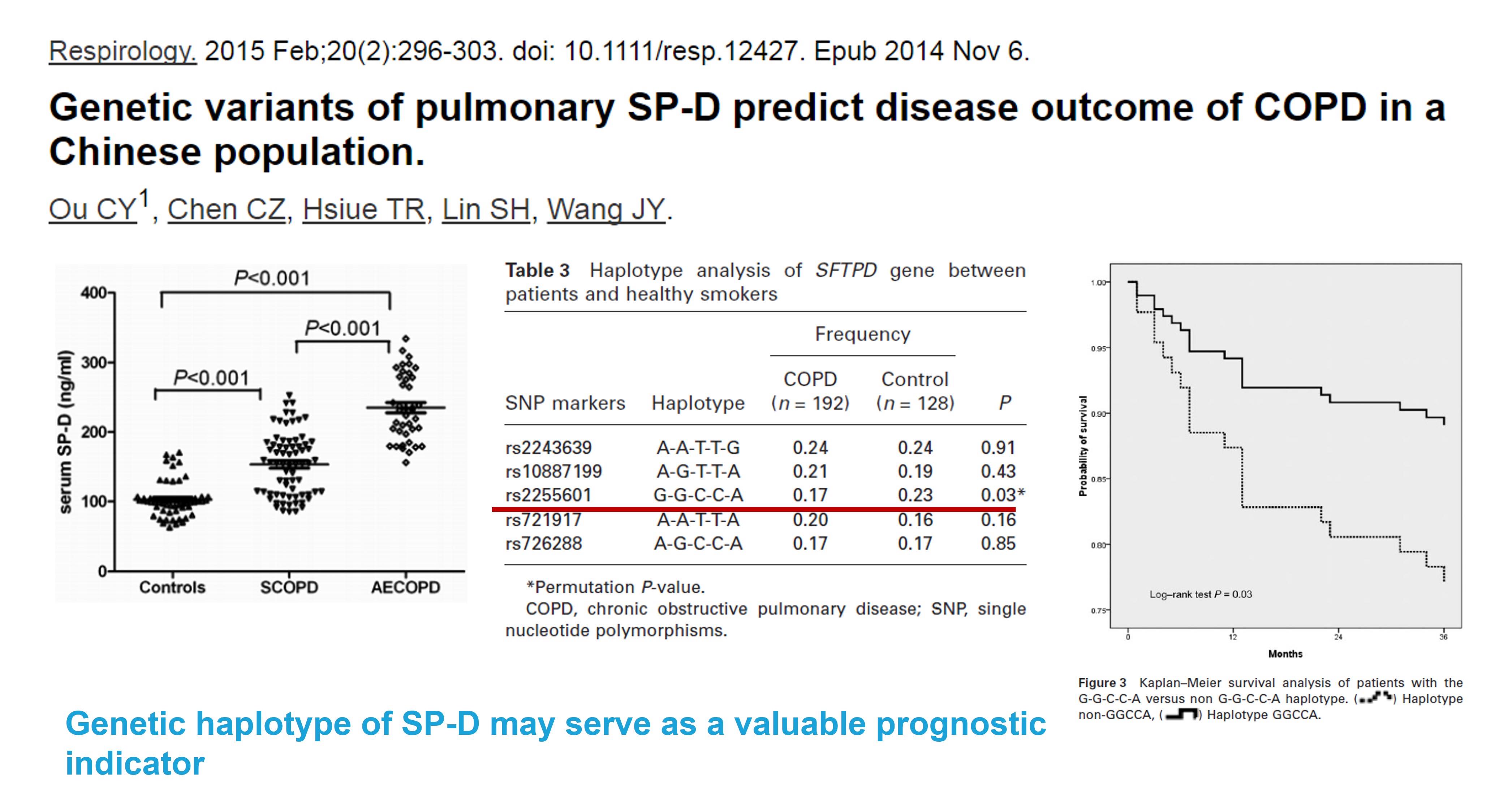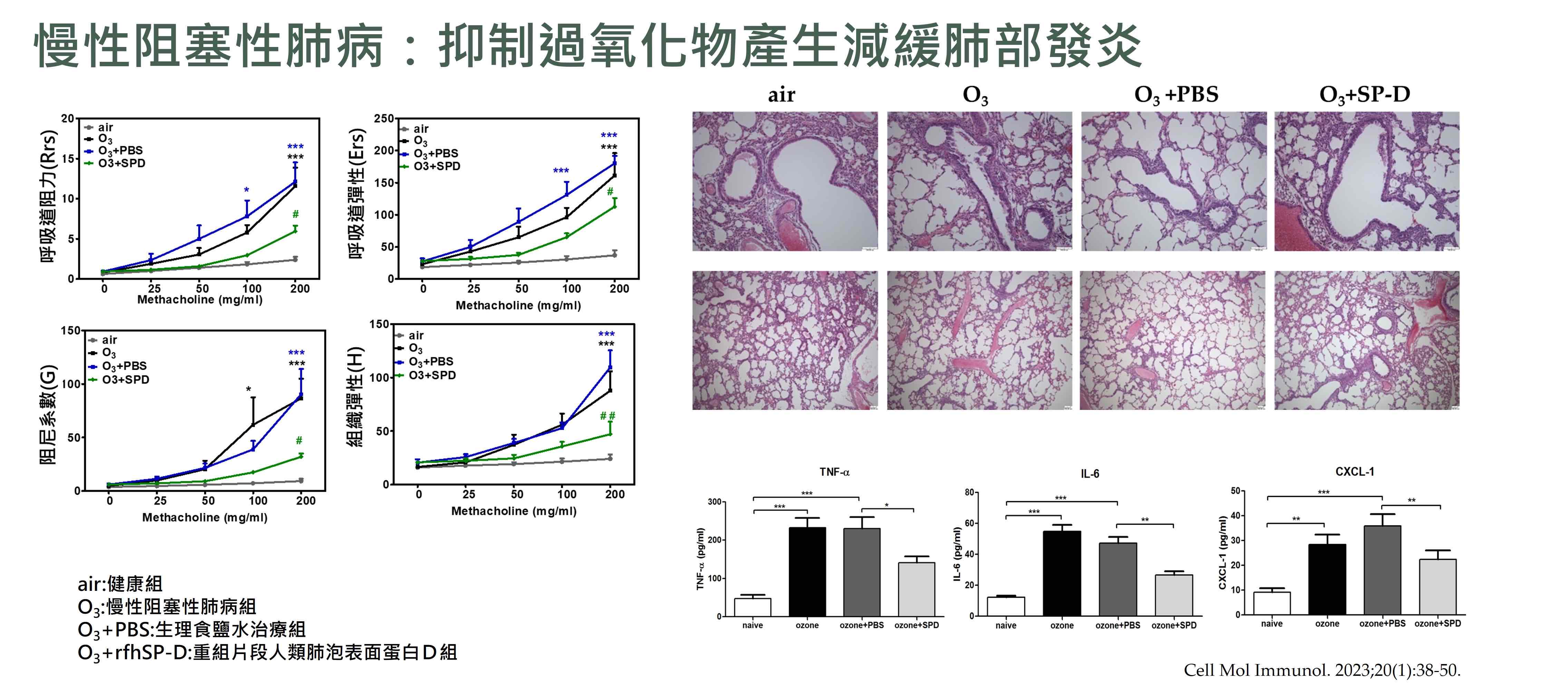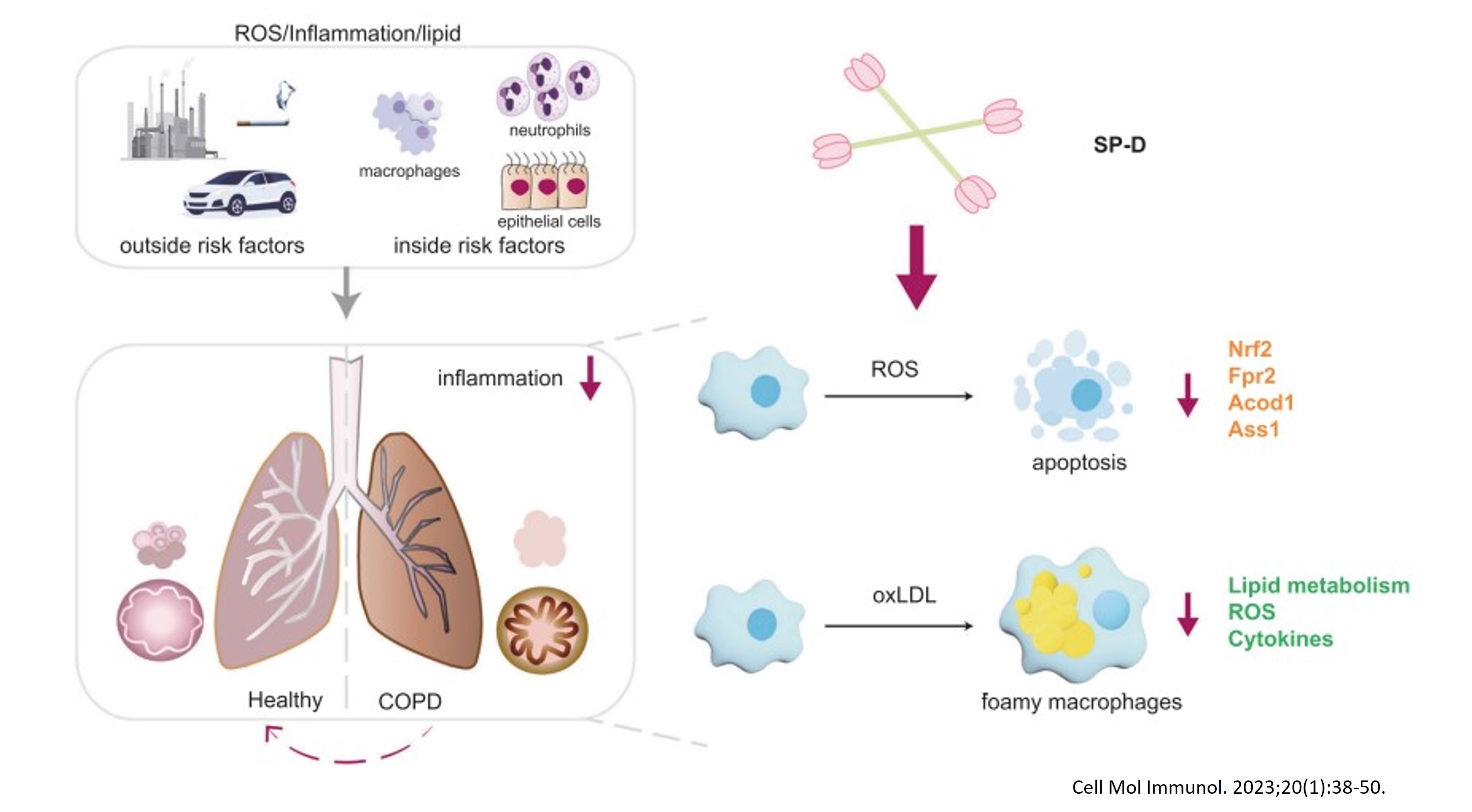| Technical Name | Administration with recombinant fragment of human SP-D (rfhSP-D) in the diagnosistreatment for chronic obstructive pulmonary disease | ||
|---|---|---|---|
| Project Operator | China Medical University | ||
| Project Host | 王志堯 | ||
| Summary | We developed tools for predicting COPD susceptibilityprognosis using SP-D concentrationssingle nucleotide polymorphism of SP-D as biomarkers. Moreover, we designed fragment of recombinant human lung surfactant protein D (rfhSP-D), which is able to treat mice model of COPD through lipid metabolism change in foamy macrophagehas the potential for clinical application. |
||
| Scientific Breakthrough | COPD is one of the leading causes of death in modern societies. There is no biomarker for prognostic prediction,no effective medication to prevent COPD mortality, except for symptoms control. A G-G-C-C-A haplotype of SP-D is more likely to reduce disease risk,lower SP-D plasma levels improve lung function after bronchodilators. We obtained a new biomarker for predicting COPD prognosisa therapeutic application for treatingpreventing COPD using this recombinant SP-D protein. |
||
| Industrial Applicability | This researchdevelopment is valuable because SP-D genotype can be used to predict the likely outcome of COPD patients during treatment,physicians can use it for clinical trials to screen for suitable drugs. The feature not only improves medical care quality, but it has excellent market uniquenessreferences, providing a platform for drug screenings for COPD, which generates profitspositive results on the diagnostic market. |
||
| Keyword | COPD (Chronic Obstructive Pulmonary Disease) SP-D (Surfactant protein D) Smoking Air pollution Single nucleotide polymorphism Prognostic indicator Protein drug Biomarker Precision medicine Foamy macrophages | ||
- Contact
- Miao-Hsi Hsieh
- karinadrift@gmail.com
other people also saw







